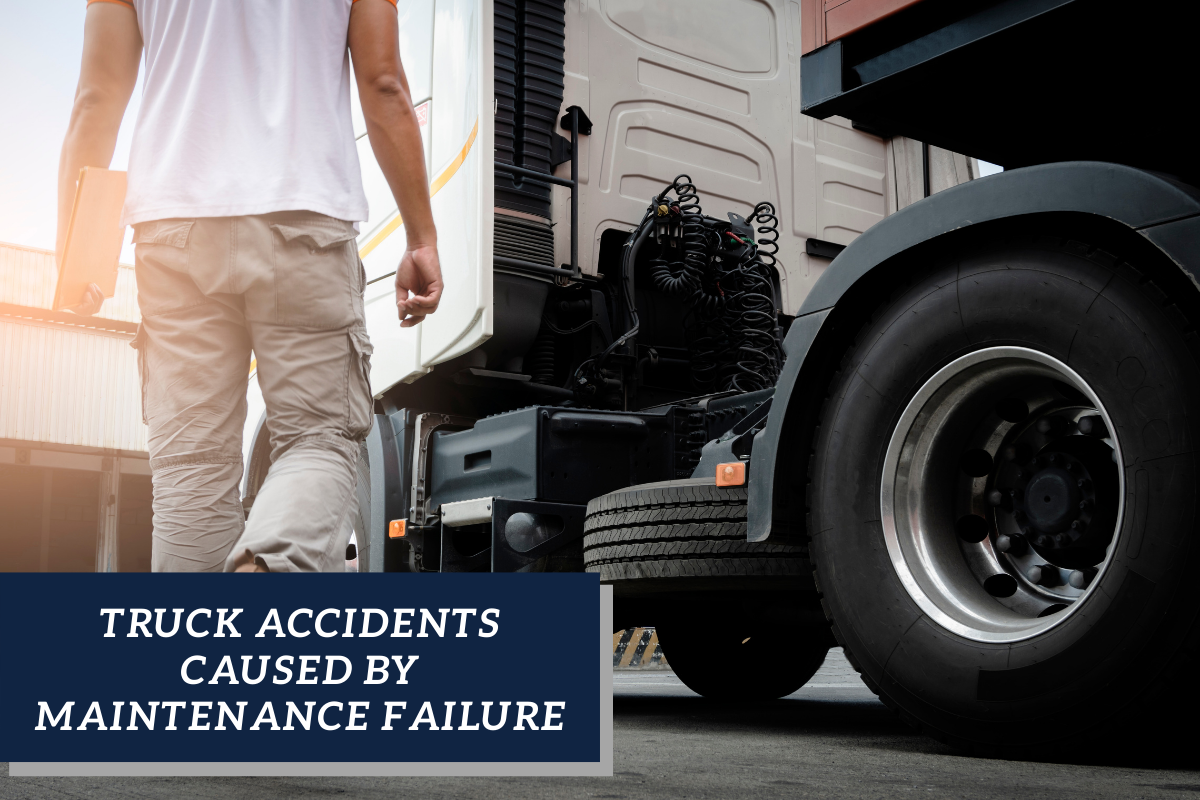
Most of the attention around commercial truck or big rig accidents will focus on the driver and their actions or inaction. At least a third of commercial vehicle accidents, however, can be traced to failures of maintenance in the truck itself. When a vehicle is 50 feet long and weighs up to 80,000 pounds, everything needs to be in working order, and maintenance becomes a critical factor in accidents.
If you have been injured in a collision with a commercial truck or big rig, and you believe faulty maintenance may have been a factor, you should contact Brauns Law Accident Injury Lawyers PC. We will work to help you get compensation for your injuries and get the justice you deserve.
Who Is Liable for Maintaining Commercial Trucks?
According to the Federal Motor Carrier Safety Administration (FMCSA), some 29% of big rig accidents were caused by poorly maintained brakes. The same study showed that another 10% of accidents were due to tire failure or damage.
The FMCSA provides specific guidelines for how commercial vehicles must perform, how they must be maintained, and the requirements for inspection and enforcement of the regulations. Brakes and tires are considered so important that they each have their own subsections for how they must be maintained and inspected.
According to the FMCSA, motor carriers are required to inspect their vehicles and always keep them in safe repair. The company is required to make sure its drivers know how to inspect their vehicles, have a way to report maintenance problems, and that there is a mechanism in place for correcting any problems discovered by the drivers while on the road.
For instance, if a driver discovers the brakes are worn and likely to fail, the driver must not be required to wait till the truck is all the way back in the shop before the brakes can be fixed.
Failure to Maintain
Failure to comply with state and federal requirements is called “failure to maintain” in a negligence lawsuit. Both the trucking company and the driver have a duty to comply with federal regulations. When failing to do so results in an accident, they may be liable for any injuries which result.
Although there are numerous ways a vehicle as complex as a big rig can be improperly maintained, the most common causes of injury have been noted already.
- Failure to maintain brakes – A big rig’s brakes must effectively stop the truck within 40 feet if the truck is traveling 20 miles per hour. If the brakes do not stop it at a low speed, there’s no way it can be stopped at a higher speed. Failing to regularly test and maintain the brakes is the primary cause of maintenance-related accidents.
- Failure to maintain tires – Everyone who drives the highways has seen huge semicircles of rubber along the road, the result of the outer tread of a truck tire peeling away from the rim. Blowouts in truck tires happen for the same reason they do in passenger vehicles. Debris in the roadway, worn treads, under- and over-inflation. Tires must be inspected frequently and checked for objects embedded in the tread. Truck tires have wear bars, just as car tires do. When truck tires fail, the results can range from cars being struck by large pieces of flying rubber, to the trailer itself rolling or jackknifing.
- Failure of trailer maintenance – Trailers are a separate category because of the nature of trucking. The trailers are often owned by one company, and the truck by the driver or a trucking company. Unless the companies are diligent about ensuring the drivers can take care of the trailer, the maintenance is not always under their control. If the trailer is in poor condition, repairs on the road may be out of the driver’s hands, and accidents may result.
These three issues are the cause of most maintenance-related truck accidents, but there are others. Poorly maintained load restraints can cause loads to shift or come loose, and the trailer can jackknife or topple over unexpectedly. Electrical systems can fail, leading to the loss of brake lights and headlights. Misaligned or mismatched trailer hitches can lead to the trailer coming loose from the truck, a terrible prospect at highway speed.
Proving That Maintenance Failure Caused a Collision
If you believe maintenance failure played a role in your accident, there are a few steps you need to take. You should contact a truck accident attorney right away. This is especially important in a commercial vehicle accident because of the need to acquire the truck’s electronic logging device (ELD) and other information.
The ELD is similar to a plane’s “black box.” It records all the information about the performance of the truck, including any recent maintenance, how far the vehicle has traveled, and other details. However, ELD data has two main flaws.
- The FMCSA only requires data to be backed up and stored for six months. After that, it can be deleted or destroyed.
- Beginning this year (2022), all 3G network carriers will be phased out, and companies must upgrade to 4G networks or lose their connectivity.
The overlap in these two issues means that recovering ELD data during the next 18 months could be especially problematic. If you have been involved in an accident with a big rig, you and your attorney need to obtain this information immediately, before any data loss due to cellular company transfer happens.
How Our Georgia Truck Accident Lawyers Can Help
At Brauns Law Accident Injury Firm, PC, we know that you have enough to handle following an accident without trying to deal with the complexities of federal regulations and trucking laws. We have the experience and resources necessary to investigate the cause of the maintenance failure and hold the responsible party accountable. We know that being involved in a commercial vehicle accident means gathering information and finding details you may not have access to. Our attorneys know where to find this information and can help you get the compensation you deserve following a truck maintenance accident. Call our Lawrenceville truck accident lawyers for a 100% free case evaluation today.














